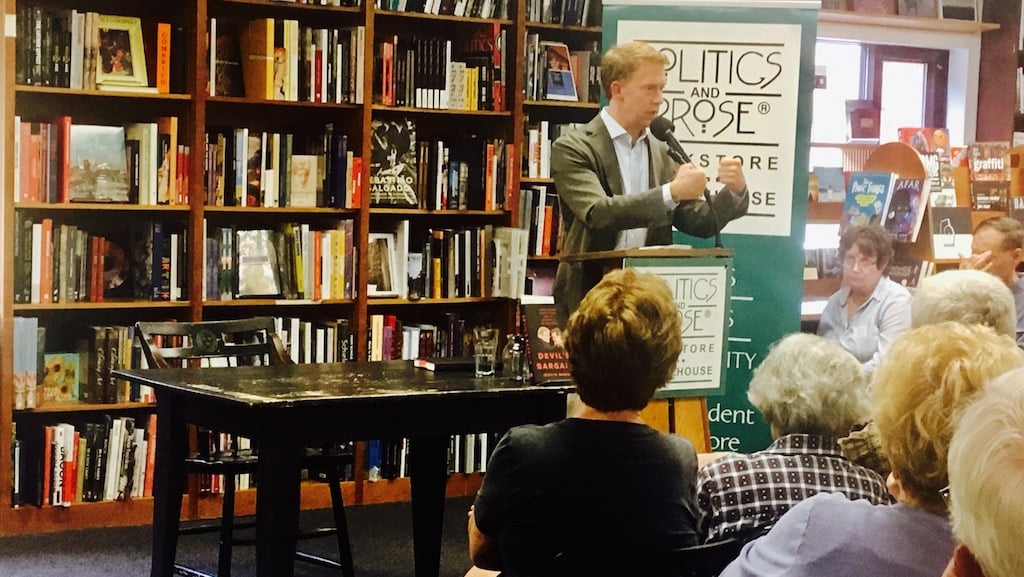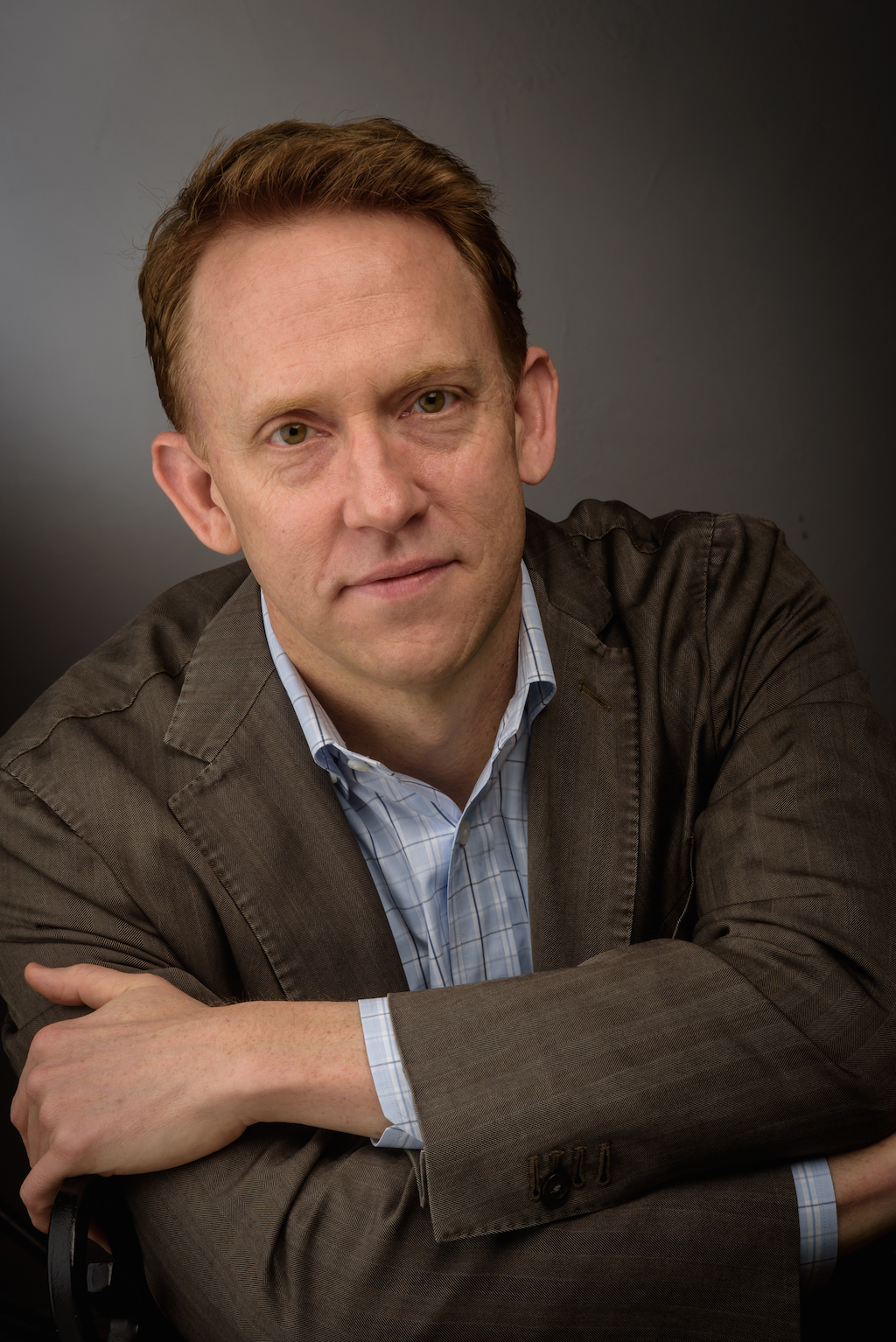When journalist Joshua Green attended a screening of a documentary about Sarah Palin back in 2011, he could not have imagined that the film’s director, Steve Bannon, would one day play a central role in catapulting a then-impossible Republican candidate into the White House. In his new book, Devil’s Bargain, Green details the path of the now-White House chief strategist’s surreal career, as well as how he developed his nationalist brand of conservatism, and ultimately saved Donald Trump’s presidential campaign.
Green spoke with Washingtonian about Trump, Bannon, and the future of the former Breitbart News chair in a divided administration.
What drew you to Steve Bannon, well before he made it to the White House?
I really was and still am, genuinely interested in his politics, because it’s different than the typical left/right stuff that you typically get in Washington. I think that subjects can always tell if you’re really interested in what it is you’re doing, or if you’re just carrying out an assignment. And Bannon, more than anything, wants respect and to be taken seriously. And I think that’s why he was willing to talk to me.
How would you characterize Bannon’s relationship with the mainstream media?
I think Bannon, secretly, is just fine with the mainstream media, and particularly loves investigative reporters, because they’re diggers. And he thinks that that can be useful for his political goals because he believes (correctly, I think) that if you can bring real information, real scoops–facts, as opposed to spin–to investigative reporters, they’ll be interested in it.
The classic story of Bannon doing that is in my book. He concocted this Clinton Cash book to essentially go out and be a privately financed investigative effort into Hillary Clinton’s finances. It really did wind up making its way into the mainstream media and affected American politics.
Do you think Trump would have won without Bannon?
I don’t think he would have won without Bannon. Bannon had an interesting and, I think correct, diagnosis of why Republicans failed to stop Bill Clinton in the 1990s. His diagnosis was that they became so whipped up by their own rumors and outlandish scandals that they became trapped in a bubble, and didn’t recognize that ordinary voters–people outside the mainstream media–weren’t buying their arguments. And it wasn’t until the 1998 elections, when Republicans lost seats, and Speaker Newt Gingrich was ousted from his job, that they kind of woke up to that.
Coming into the campaign in August when Trump’s campaign was in chaos…Bannon was able to keep his focus trained on Hillary Clinton. And Bannon was especially good at that because he spent years filling his own head with all these facts, figures, and arguments, which he in turn imparted to Donald Trump. If you look at what Trump did and said over the last few months of the campaign, it was pure, uncut, Steve Bannon attacks on Clinton. In the end that turned out to be just effective enough to get Trump over the finish line.

Bannon came into the White House with a radical vision, but it seems that it’s been a challenge for him to remain relevant. How do you think his role has evolved since he arrived?
We all know that life in Trump’s inner circle is…pretty much like Game of Thrones, where there are different factions and advisers plotting to tear each other down and climb over each other’s backs to influence Trump. Bannon was kind of seated on the throne right after the election in the early days of the administration, but when Trump ran into so much trouble right off the bat with his executive orders, and the protests, and all the liberal resistance…I think other advisers in the White House–what Bannon and his advisers call the globalists–were able to make a convincing case to Trump that Bannon’s method isn’t working. So they gained a kind of primacy.
The thing about Trump’s world is that you’re never really dead if you just stick around and endure it. Sure enough, the Russia scandal comes up, and Bannon won back a measure of his power, although we see with the news that Anthony Scaramucci’s coming in as the new communications director, that Bannon is nowhere near all-powerful.
What’s your impression of how Bannon has been received among the traditional Republican establishment?
I think Bannon discovered an unexpected appreciation for what it is that people like Mitch McConnell do, and why they do it. I would put Paul Ryan in that category too. I think Bannon, on the outside, had never taken the time to stop and think why a Republican leader might pursue something less than the most extreme possible strategy, which is always what Bannon wants.
When he got into the White House, I think he came to realize pretty quickly that the answer is because you have to shepherd a Republican coalition of different politicians who have different pressures and interests, and it’s a really hard thing to do. We saw in the House that it took two tries for Paul Ryan to do that with health care. Bloomberg ran a piece back in February making the fascinating and accurate point that Bannon and Paul Ryan have become allies and almost like…bros, for lack of a better word. Once they met each other and understood what the other guy was trying to do, they found out they could work together.
For years–partly due to his brand of Catholicism, and partly due to time spent in the Middle East when he served in the Navy–Bannon has believed that Western civilization is under attack. Trump only embraced this message when he realized it could win him votes. What did the unlikely pair see in one another, and how has their relationship evolved?
Bannon did not recognize right off the bat that, “Oh, Trump is a serious politician that can help further my agenda.” He thought Trump was kind of a lark, he was this cartoonish celebrity from TV, and of course no one ever imagined he would be a real presidential figure. It wasn’t until later that Bannon caught onto that.
Before Bannon became campaign manager, I think it was a very positive relationship because Trump was getting what he wanted from Bannon–he was getting political advice, but even more so he was getting very positive coverage from Breitbart News. And all Trump really wants in the world is positive affirmation.
But I think it soured almost immediately because neither one of them have any idea how to govern. And that meant that things went badly, and the fact that things were going badly meant that the cable news coverage was negative, and Trump’s whole view of reality is piped through cable television. I think from that point on, the relationship with Bannon went into decline. It’s improved here and there. When Trump gets in trouble, Bannon will always defend them. But I don’t think they’ll ever get back the fire and passion of their early relationship.
This interview has been edited for brevity and clarity.



















